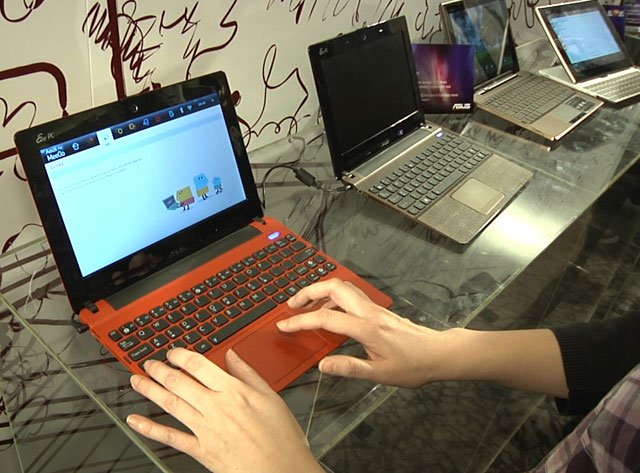Intel considers netbook strategy
The company is behind ARM in the tablet segment, which is growing as the netbook market shrinks.

After initial success, Intel's netbook strategy is at a crossroads when demand for low-cost tablets and laptops with larger screens increases, a company leader said.
Buyers don't want the cheapest PCs anymore, they want their computing devices to have better performance, better features, said Greg Welch, segment manager for Intel's mobile client platforms. said. The initial success of netbooks is partly due to low prices, but now performance is a high priority for buyers.
Intel Atom chips are used in most netbooks. The market for netbooks has been compromised by the growth of the tablet. According to IDC, while worldwide PC sales of Q2 / 2011 increased by 2.6% compared to Q2 / 2010, the market share of netbooks (part of the PC segment in general) decreased by 12% from 22 %
Intel has also introduced Atom chips for tablets and smartphones (2 smartphones), two of which are virtually absent. Intel is challenging ARM - the company has processors (processors) used in most tablets and smartphones.
Intel is also trying to boost PC interest through " ultrabook " - a thin, lightweight laptop with tablet features. Chip analysts have predicted that ARM will overturn Intel's dominance in the laptop market with its low-power chips.
Intel is looking at the Atom architecture in a comprehensive way, and will build netbook chips until it becomes clear what customers really want, Welch said. Many devices are being visualized and Atom designs will fit them - whether it's a handheld device or a PC. These devices are not based on Core processors, used in laptops and mainstream desktops.
You should read it
- Netbooks run out of life
- Netbook can no longer last ...
- Intel and 'strategy card' ultrabook
- October will have netbooks using Samsung's Atom chips
- Eee PC S101 high-end netbook
- The Intel® Atom ™ dual-core netbook has appeared
- Watching HD videos on netbooks will be easy
- Acer: 'Netbook is not dead yet'
- Netbooks are increasingly selling slowly in Vietnam
- Intel began to be skeptical about netbooks
- Scoring CPU for netbook
- Intel raised the netbook screen size limit
Maybe you are interested
Fighting for partners can help animals adapt better when their living environment becomes harsh Decoding the phenomenon of East Asia sky blazing throughout 9 days in 1770 Li explained the phenomenon: strange circular halo around the Sun. 7 natural visual illusions that trick the world's most famous eyes Cloud like scary cannons appeared in the sky of Japan The most bizarre creatures are found by scientists under the sea floor of Australia
